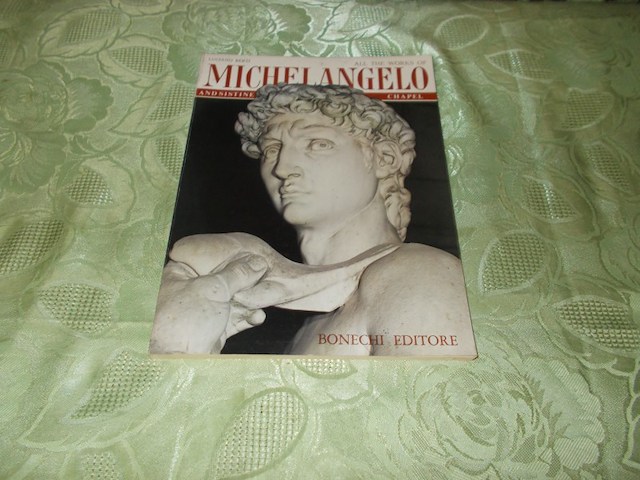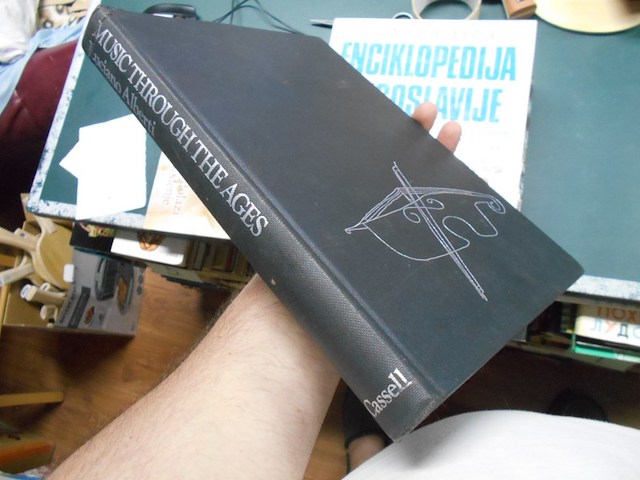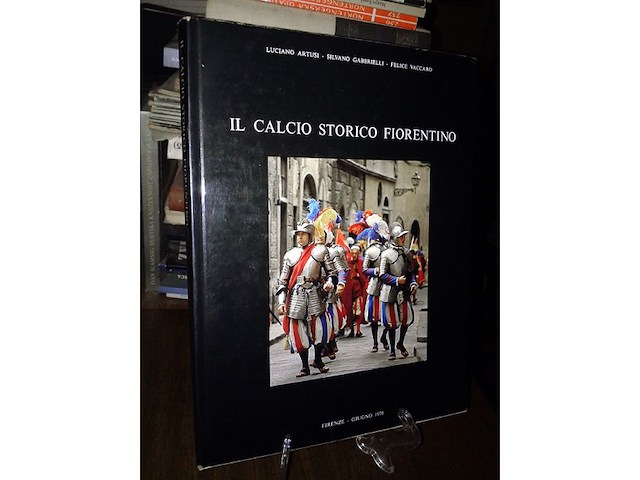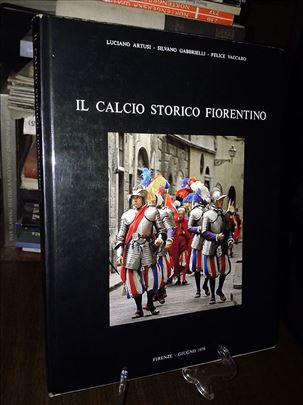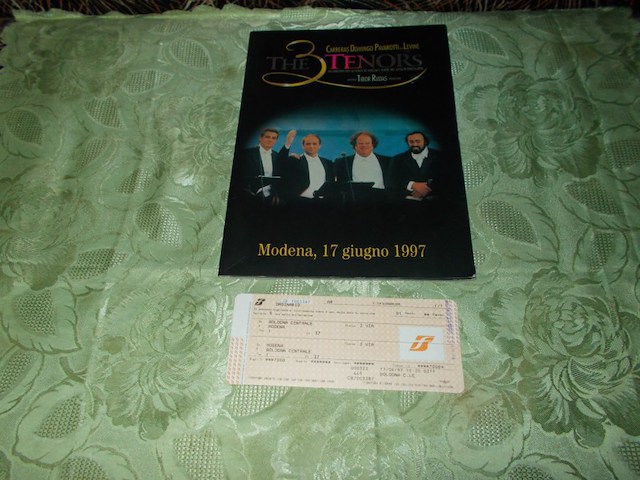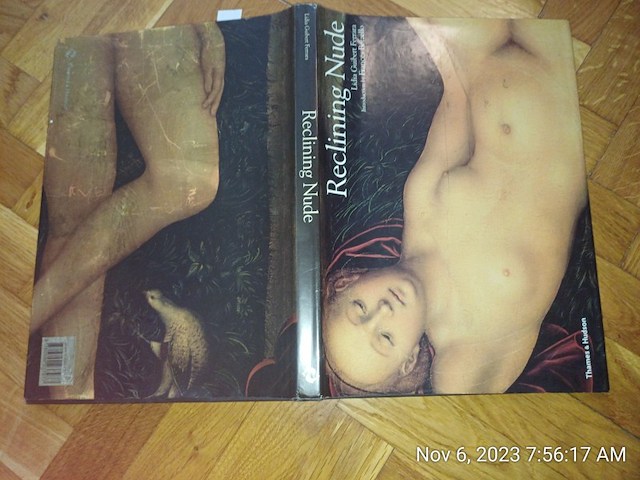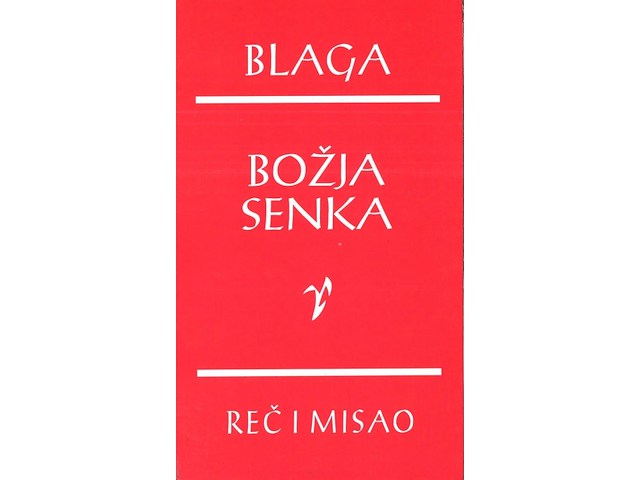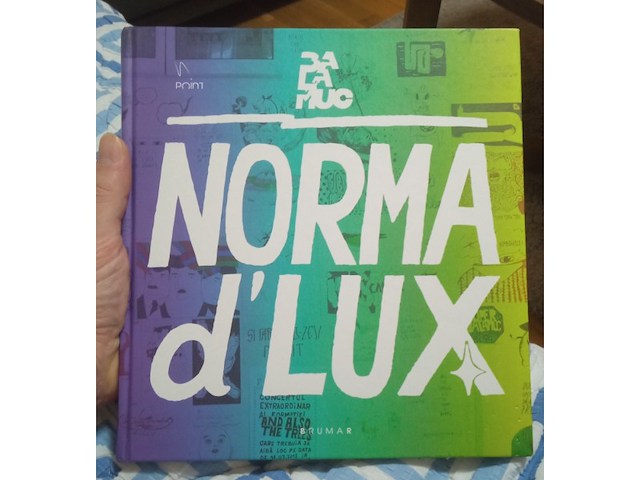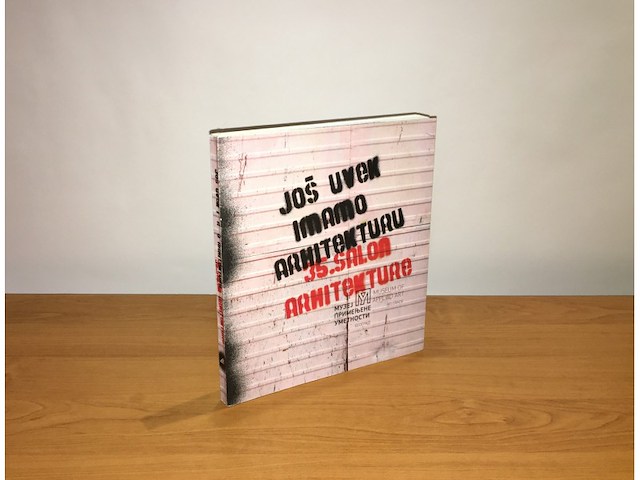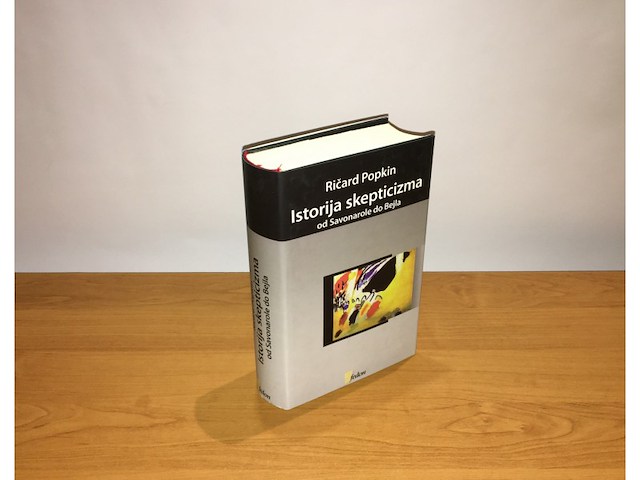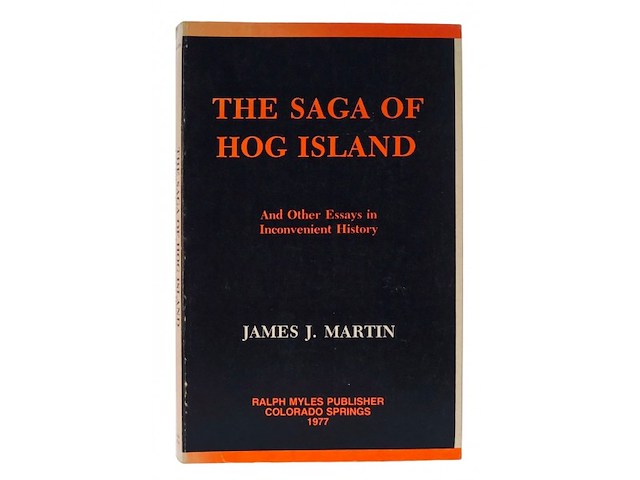Pratite promene cene putem maila
- Da bi dobijali obaveštenja o promeni cene potrebno je da kliknete Prati oglas dugme koje se nalazi na dnu svakog oglasa i unesete Vašu mail adresu.
1-11 od 11 rezultata
Broj oglasa
Prikaz
1-11 od 11
1-11 od 11 rezultata
Prikaz
Prati pretragu "luciano"
Vi se opustite, Gogi će Vas obavestiti kad pronađe nove oglase za tražene ključne reči.
Gogi će vas obavestiti kada pronađe nove oglase.
Režim promene aktivan!
Upravo ste u režimu promene sačuvane pretrage za frazu .
Možete da promenite frazu ili filtere i sačuvate trenutno stanje
Stanje:dobro Izdato:Cassel,London Godina 1974 Korica:tvrda Ovo se ne kupuje svaki dan. Stanje proverite na slikama. U svakom slucaju, pitajte preko poruka, tražite dodatne slike na mail, proverite dali vam odgovara stanje, i dajte ponudu.. Ko je hrabar, neka ga samo posmatra. :) Uštedite na poštarini i kupite što više knjiga! SRETNO! -----52-----
-
Kolekcionarstvo i umetnost chevron_right Knjige
Luciano Artusi, Silvano Gabbrielli, Felice Vaccaro – IL CALCIO STORICO FIORENTINO (Copexa, Firenze – Giugno, 1976, tvrd povez, 137 str., ilustrovano) Tradicionalni `kalčo` u Firenci. MK-0X
KSČ64) Sensuous, voluptuous, provocative - the female form has inspired artists for centuries, making it perhaps the most popular subject in the history of painting. Since Giogione`s `Sleeping Venus`, the first notable female nude in Western painting, artists have focused on the infinite possibilities of the representation of the female body. Featuring full-page illustrations of masterpieces of the genre - from Titian`s `Venus of Urbino` to Manet`s `Olympia`, from Invres` `Large Odalisque` to Lucian Freud`s `Naked Girl` - this volume provides a tour of Western society`s ever-changing visions of beauty and repose.
Autor - osoba Blaga, Lucian Naslov Božja senka / Lučijan Blaga ; [izbor, prevod i pogovor Petru Krdu] Vrsta građe poezija Jezik srpski Godina 1995 Izdavanje i proizvodnja Beograd : Rad, 1995 (Beograd : Zuhra) Fizički opis 76 str. ; 18 cm Drugi autori - osoba Cârdu, Petru, 1952-2011 = Krdu, Petru, 1952-2011 Cioran, Emil, 1911-1995 = Sioran, Emil, 1911-1995 Zbirka Reč i misao ; knj. 462 Napomene Vedrina svetlo-tamnog i Lučijan Blaga zaštićen njome / Petru Krdu: str. 63-68 Unutrašnji stil Lučijana Blage / Emil Sioran: str. 69-73. Predmetne odrednice Blaga, Lučijan, 1895-1961 Lučijan Blaga (1895–1961) je jedan od stubova nosača rumunske kulture i duhovnosti čije ime stoji odmah posle velikog Mihaila Emineskua (1850–1889). Snažni glas iz Transilvanije, poreklom iz Erdelja, iz okoline Sebeša, 1920. godine doktorirao je filozofiju u Beču, ali je ubrzo pokrenuo književni časopis „Misao“ i time odredio svoj pesnički put. Neko vreme radio je u diplomatiji u Varšavi, Pragu, Beču, Brnu, a član Rumunske akademije postao je 1937. godine. Posle Drugog svetskog rata, silom prilika, povukao se u unutrašnje izgnanstvo i posvetio isključivo pisanju/mišljenju... MG95 (L)
Dvojezična knjiga na rumunskom i engleskom, prepuna sjajnih ilustracija, karikatura i crteža. The Norma d\`Lux art album (Brumar house, Timişoara, Point collection, 2016) contains a selection of the more than 700 drawings that form the online project of the Balamuc group entitled Norma – a drawing per day/radical take out of Pi, organized in depending on the theme in 13 chapters dealing with various subjects, about art and society, from social to political. The bilingual album has two prefects (Dana Sarmeș and Dan Perjovschi), 256 unnumbered pages, 1400 g, cover and overcover, and is published through the efforts of the Contrasens Association, with the financial support of AFCN. Norma d\`Lux illustrates Balamuc`s main project, used mostly to try out ideas and vent frustrations from every day in almost anonymous drawings posted online, more or less daily, on the Facebook page, since 2014. Other visual artists were invited to participate in this project, whose drawings are reproduced in the Supadupa Invites chapter: Sorina Vazelina, pnea, Neuro Book, Ileana Surducan, Maria Surducan, Mimi Ciora, Mircea Popescu, Dana Catona, Monotremu, Ioana Vreme Moser, Lucian Popovici, Aitch, Saddo, Katja Spitzer, Gloria Vreme Moser, Dan Perjovschi and Suzana Dan. Više informacija: https://romaniandesignweek-ro.translate.goog/portofoliu/norma-dlux?_x_tr_sl=ro&_x_tr_tl=en&_x_tr_hl=en-US# Odlično očuvano, jedino je dustjacket malo cepnut prilikom transporta, sve ostalo je kao novo 2016. godina, Brumar 254 strane Tvrd povez Veliki format
35. SALON ARHITEKTURE Beograd, 27. mart - 30. april 2013. JOŠ UVEK IMAMO ARHITEKTURU Urednik kataloga - Ljiljana Miletić Abramović Autori tekstova - Ljiljana Miletić Abramović, Slobodan Danko Selinković, Maša Bratuša Prevod - Biljana Velašević, Vladimir Abramović Izdavač - Muzej primenjene umetnosti, Beograd Godina - 2013 228 strana 26 cm ISBN - 978-86-7415-161-7 Povez - Broširan Stanje - Kao na slici, tekst bez podvlačenja AUTORI ZASTUPLJENI U KATALOGU: Zoran Abadić, Dušan Milovanović, Jelena Bogosavljević, Jelena Zagorac, Milan Karaklić, Nikola Žikić, Dijana Adžemović Anđelković Borislav Petrović, Ivan Rašković, Nikola Stojković, Đorđe Alfirević, Nikola Andonov, Vladimir Anđelković, Milica Apostolović, Marijana Kaštelan, Ivana Ilić, Jelena Vučić, Lidija Kljaković, Damjan Jovanović, Miloš Grbić, Tatjana Babić, Dejan Babović, Ljiljana Bakić, Nikola Baković, Milica Baludžić, Aladin Baljinac, Lazar Belić, Ivan Benussi, Danlo Beronja, David Bilobrk, Aleksandar Bobić, Đorđe Bobić, Divna Bogdanović, Veliborka Bogdanović, Aleksandar Bogojević, Milica Bogojević-Bobić, Jelena Bogosavljević, Petar Bojović, Milan Božić, Jelena Brajković, Marko Brkić, Andreja Buđevac, Saša Buđevac, Ksenija Bulatović, Morten Bulow, Nikola Cakić, Miljan Cvijetić, Žarko Ćajić, Nataša Ćuković Ignjatović, Milica Dejanović, Bojana Dončevski, Milan Dragić, Maja Dragišić, Jasna Drakulović, Vladan Drndarević, Saša Đak, Vladan Đokić, Ljiljana Đukanović, Miloš Đurasinović, Milan Đurić, Vanja Enbulajev, Davor Ereš, Đorđe Gec, Nevena Pivić, Vanja Otašević, Zorana Vasić, Ljubiša Folić, Srđan Gavrilović, Nebojša Glišić, Milka Gnjato, Milica Golić, Miloš Grbić, Sanjin Grbić, Jovan Grbović, Bojan Čoti, Danilo Kordulup, Jasmina Hadžiahmetović, Cvjetković Miroslav, Danica Đorđević, Jelena Milojković, Igor Pantelić, Radoslav Ilić, Mirela Čoban, Nikola Šćekić, Dušan Ignjatović, Ivana Ilić, Relja Ivanić, Jelena Ivanović Vojvodić, Nataša Janković, Jovana Jelisavac, Aleksandar Joksimović, Damjan Jovanović, Goran Jovanović, Natalija Jovanović, Milica Jovanović Popović, Slobodan Jović, Anđela Karabašević, Milan Karakli, Marijana Kaštelan, Miroslav Kaštelan, Milena Katić, Jasna Kavran, Aleksandar Keković, Željko Kerleta, Lidija Kljaković, Aleksandar Knežević, Nemanja Kocić, Ana Raković, Mladen Pešić, Milorad Pejanović, Miloš Komlenić, Slaviša Kondić, Dragana Konstantinović, Ivan Kostić, Bojana Kovač Đurasinović, Ana Kovencz-Vujić, Jelena Krstović Nikolić, Spasoje Krunić, Vladimir Kulić, Tamara Kuljanin, Lazar Kuzmanov, Olga Lazarević, Selma Lazović, Zoran Lazović, Jana Lipkovski, Peter Lohr, Darija Ljubić Vojinović, Ivan Ljubić, Vanja Enbulajev, Vladimir Radulović, Nikola Stevanović, Vojislav Stevanović, Predrag Maksić, Slobodan Maldini, Anđelka Mandić-Milutinović, Čarna Marević, Goran Ivo Marinović, Dragan Marković, Iva Marković, Srđan Marlović, Marko Marović, Marija Martinović, Nikola Martinović, Marija Miković, Dejan Milanović, Duška Milanović, Branislav Milenković, Jelisaveta Milenković, Vladimir Milenković, Dejan Miletić, Jovana Miletić, Katarina Miletić, Nemanja Miličić, Miloš Milojević, Slađana Milivojević Milica Milojević, Aleksandar Milojković, Ivan Milošević, Dušan Milovanović, Vasilije Milunović, Predrag Milutinović, Dejan Miljković, Milutin Miljuš, Petar Mitković, Jelena Mitrović, Jovan Mitrović, Vladimir Mitrović, Maroje Mrduljaš, Duška Mrvoš, Vesna Nadaždin Ljubičić, Danilo Nedeljković, Saša Nedeljković, Dušan Nenadović, Milica Nešovanović, Aleksandra Nikitin, Goran Nikolić, Jelena Nikolić, Marko Nikolić, Vojislav Nikolić, Dijana Novaković Nikola Novaković, Ivan Obradović, Milena Obradović, Milorad Obradović, Siniša Obradović, Anđelina Ošap, Jelena Pančevac, Ana Panić, Vanja Panić, Ksenija Pantović, Vladimir Paripović, Miloš Paunović, Ranko Pavlović, Milorad Pejanović, Malden Pešić, Miroslava Petrović Balubdžić, Borislav Petrović, Marjan Petrović, Marko Petrovi, Milica Pihler, Tamara Popović, Jelena Pucarević, Marko Radenković, Dejana Radišić Pešić, Dušan Radišić, Ana Radivojević, Radovan Radoman, Renata Radovanović, Vladimir Radulović, Nemanja Radusinović, Aleksandar Rajčić, Mirko Rakojević, Tatjana Rakojević, Ana Raković, Ivan Rašković, Grozdana Šišović, Dejan Milanović, Zorica Međo, Aleksandra Praštalo, Nikola Milanović, Aleksandar Ristić, Katarina Ristić, Aleksandar Ristović, Arber Sadiku, Gezim Sadiku, Ana Savić, Dubravka Sekulić, Slobodan Danko Selinkić, Sanja Simonović, Miloš Spasić, Branislav Spasojević, Maja Dragišić, Milan Božić, Marko Stojković, Milica Milosavljević, Dunja Ratković, Saša Lukić, Pavle Stamenović, Danica Stanković, Oliver Stanković, Branko Stanojević, Maja Stanojević, Dragan Stevanović, Nebojša Stevanović, Nikola Stevanović, Vladimir Stevanović, Vojislav Stevanović, Vladan Stevović, Stjepanović Nenad, Dušan Stojanović, Stefan Stojanović, Nikola Stojković, Marija Strajnić, Dijana Novaković, Maja Trbović, Aleksandra Nikitin, Dušan Nenadović, Oliver Stanković, Dragana Stevanović, Aleksandar Šavikin, Grozdana Šišović, Janko Tadić, Milan Tanić, Milica Tasić, Ana Savić, Alen Spahić, Dubravka Sekuli, Nataša Janković, Adrijan Karavdi, Ognjen Stanisavljević, Mihailo Timotijević, Dejan Todorović, Maja Trbović, Žarko Uzelac, Pavle Vasev, Ljiljana Vasilevska, Milica Vasiljević, Dragana Vasiljević Tomić, Miomir Vasov,Dejan Vasović, Vojislava Vasović, Milorad Vidojević, Bojana Vitorović, Goran Vojvodić, Mirosanda Vranić, Jelan Vučić, Aleksandru Vuja, Milan Vujović, Marko Vuković, Zlata Vuksanović Macura, Jelena Zagorac, Miona Zdravković, Snežana Zlatković, Nikola Žikić, Katarina Živković, Milan Živković, Miloš Živković, Stevan Žutić, Maroje Mrduljaš, Vladimir Kulić, Dejan Jović, Nika Grabar, Petra Čeferin, Robert Burghardt, Gal Kirn, Irena Šentevska, Dubravka Sekulić, Lana Lovrenčić, Ivan Kucina, Milica Topalović, Marko Sančanin, Divna Penčić, Biljana Spirikoska, Jasna Stefanovska, Ines Tolić, Nina Ugljen Ademović, Elša Turkušić, Matevž Čelik, Alenka Di Battistta, Ana Džokić I Marc Neelen, Nebojša Milikić, Tanja Damjanović Conley, Jelica Jovanović, Višnja Kukoč, Vesna Perković-Jović, Martina Malešič, Luciano Basauri, Dafne Berc, Dinko Peračić, Miranda Veljačić, Bogo Zupančić, Tamara Bjažić Klarin, Jelena Grbić, Dragana Petrović, Luka Skansi, Dražen Arbutina, Hela Vukadin, Ana Šilović, Simona Vidmar, Matevž Čelik Ako Vas nešto zanima, slobodno pošaljite poruku.
RIČARD POPKIN ISTORIJA SKEPTICIZMA OD SAVONAROLE DO BEJLA Prevod - Predrag Milidrag Izdavač - Fedon, Beograd Godina - 2010 672 strana 24 cm Edicija - Daimon ISBN - 978-86-86525-29-1 Povez - Tvrd Stanje - Kao na slici, tekst bez podvlačenja SADRŽAJ: Predgovor Reči zahvalnosti Uvod 1. Intelektualna kriza reformacije 2. Oživljavanje grčkog skepticizma u šesnaestom veku 3. Mišel de Montenj i nouveaux pyrrhoniens 4. Uticaj novog pironizma 5. Libertins érudits 6. Protivnapad počinje 7. Konstruktivni ili umereni skepticizam 8. Herbert od Čerberija i Žan de Šijon 9. Dekart: Pokoritelj skepticizma 10. Dekart: Skeptique malgré lui 11. Neki duhovni i religijski odgovori na skepticizam i Dekarta - Henri Mor, Blez Paskal i kvijetisti 12. Politički i praktički odgovori na skepticizam - Tomas Hobs 13. Filozofi Kraljevskog društva - Vilkins, Bojl i Glenvil 14. Biblijska kritika i početak religijskog skepticizma 15. Spinozin skepticizam i antiskepticizam 16. Skepticizam i metafizika skraja sedamnaestog veka 17. Novi skeptici - Simon Fuše i Pjer-Danijel lj 18. Pjer Bejl - Superskepticizam i počeci prosvetiteljskog dogmatizma Literatura Objavljeni materijal Rukopisni materijal Dodaci I. Skeptično o Istoriji skepticizma Da li je bilo,,pironističke krize` u ranoj modernoj filozofiji? Kritička beleška o Ričardu H. Popkinu Literatura II. Čovek i filozofija Ričard Popkin - jedna lična zabeleška PREDRAG MILIDRAG - Eros vedrine Indeks `Ričard Popkin jedan je od najuticajnijih savremenih tumača skepticizma, a njegova knjiga prati istoriju skepticizma od Savonarole do Bejla (od 1450. do 1710. godine). Taj period nije izabran slučajno. U tih bezmalo 300 godina najpre je iznova otkriven grčki skepticizam, potom inkorporiran u iskustvo renesanse, zatim izložen novim tumačenjima i preobražajima, da bi i sam odigrao nezaobilaznu ulogu kod velikih filozofa poput Dekarta, Paskala, Spinoze, Hobsa, ili iznova propitan u teološkim raspravama tog perioda. Popkin pripada američkoj školi istoričara filozofije, što podrazumeva besprekorno poznavanje teme o kojoj piše, strogost u izlaganju i, uprkos tome što je reč o tekstu koji se prostire na gotovo 700 stranica, ekonomičnost izraza. Već u prvoj rečenici knjige Popkin precizira da je skepticizam filozofsko gledište a ne niz sumnji koji se vezuje za tradicionalna religijska verovanja, što znači da je ključni ulog svake skeptičke pozicije – istina. Ipak, Popkin ne suprotstavlja skepticizam i fideizam, skeptika i vernika, kako bi se moglo očekivati s obzirom na suprotstavljenost te dve pozicije. Nikada skepticizam, sugeriše autor, nije puko neverovanje, niti je fideizam slepo verovanje. Iako skeptik preporučuje suzdržavanje od suđenja koje počiva na verovanju, to ne znači da je verovanje irelevantno za ono do čega je skeptiku stalo – do nesumnjive istine. Upotrebljavajući pojam fideizma onako kako ga je oblikovala literatura na engleskom jeziku, Popkin, zapravo, nastoji da jasnije istakne skeptički element koji je, tvrdi on, uključen u fideističko gledište. Popkinov tekst nezaobilazan je u svakoj raspravi koja sumnju koristi kao način da se dođe do delotvorne istine.` Ako Vas nešto zanima, slobodno pošaljite poruku. Richard H. Popkin The History of Scepticism Agripa Od Neteshajma Hajnrih Kornelije Agrippa Von Nettesheim Henricus Cornelius Aristotel Aristotle Arkesilaj Iz Pitane Antoan Arno Antoine Arnauld Sveti Avgustin Augustine Fransis Bejkon Francis Bacon Pjer Bejl Pierre Bayle Džordž Berkli George Berkeley Tomas Bernet Thomas Burnett Anri Bison Henri Busson Robert Bojl Boyle Hari Breken Harry Bracken Gi De Brije Guy De Brues Đordano Bruno Giordano Pjer Burden Pierre Bourdin Ciceron Vilijam Čilingvort William Chillingworth Žilijen Ejmar D`anžer Julien Eymard D`angers Gabrijel Danijel Gabriel Daniel Rene Descartes Pjer Demezo Pierre Desmaizeaux Žak Di Bosk Jacques Du Bosc Eli Diodati Elie Diogen Laertije Žak Davi Diperon Jacques Davy Duperron Žan Diveržije De Oran Džon Djuri John Dury Johan Ek Johann Eck Erazmo Roterdamski Anri Etjen Henri Estienne Samjuel Fišer Samuel Fisher Lučano Floridi Luciano Saleški Franja Simon Fuše Foucher Galileo Galilej Galilei Fransoa Garas Francois Garasse Euđenio Garin Eugenio Pjer Gasendi Pierre Gassendi Džozef Glenvil Joseph Glanvill Žan Gonteri Jean Gonery Tulio Gregori Tullio Gregory Hugo Grocijus Grotius Anri Guije Henri Gouhier Mari De Gurne Marie Gournay Herbert Od Čerberija Herbert Cherbury Gentijan Hervet Gentianus Hervetus Dejvid Hjum David Hume Tomas Hobs Thomas Hobbes Abraham Ibn Ezra Pjer Danijel Ije Pierre Daniel Huet Menaše Ben Izrael Menasseh Israel Ralf Kadvort Ralph Cudworth Žan Kalvin Jean Calvin Žan Pjer Kami Jean Pierre Camus Tomazo Kampanela Tommaso Campanella Imanuel Kant Karnead Sebastijan Kastelio Seren Kjerkegor Soren Kierkegaard Kristofer Klavijus Christopher Clavius Aleksandar Koare Alexandre Koyre Luj Burbon De Konde Nikola Kopernik Nicolaus Copernicus Pol Oskar Kristeler Entoni Ešli Kuper Anthony Ashley Cooper Fransoa La Mot Le Aje Francois La Mothe Le Vayer Isak La Pejrer Isaac La Peyrere Elizabet Labrus Elisabeth Labrousse Gotrfird Vilhelm Fon Lajbnic Gottfried Wilhelm Leibniz Pjer Le Loajepierre Le Loyer Žan Leklerk Jean Le Clerc Rober Lenobl Lenoble Elejn Limbrik Džon Lok John Locke Luj Martin Luter Luther Hose Maja Neto Jose Maia Može Majmonid Moses Maimonides Nikola Malbranš Nicolas Malebranche Leonar De Marande Karl Marks Marx Žil Mazaren Jules Kozimo Di Mediči Cosimo Maren Mersen Marin Mersenne Džozef Mid Joseph Mede Migel De Molinos Miguel Mošel De Montenj Michel Montaigne Henri Mor Henry More Silvija Mur Sylvia Murr Đovani Nezi Giovanni Nesi Gabrijel Node Gabriel Naude Isak Njutn Isaac Newton Ezekijel Olaso Ezequiel Džon Oven John Owen Đani Paganini Gianni Paracelzus Blez Paskal Blaise Pascal Gi Paten Guy Patin Sveti Pavle Kristof Pfaf Christophe Pfaff Piko Dela Mirandola Đanfrančesko Pico Della Gianfracesco Giovanni Rene Pintar Pintard Piron Platon Plutarh Henrik Regijus Henry Regius Džon Herman Rendal Arman Žan Di Plesis Rišelje Jean Du Plessis Duc Richelieu Francisko Sančez Francisco Sanchez Đirolamo Savonarola Girolamo Rajmund Sebond Raimond Sekst Empirik Sextus Empiricus Sen Siran Saint Cyran Migel Servet Miguel Servetus Martin Shokus Martinus Schoockius Rišar Simon Richard Simon Sokrat Samuel Sorbjer Sorbiere Šarl Sorel Baruh Spinoza Leo Straus Fortunat Strovski Strowski Pjer Šaron Pierre Charron Žan De Šijon Jean Silhon Čarls Šmit Charles Schmitt Džon Tilotson John Tillotson Fransoa Veron Francois Đorđo Antonio Vespuči Giorgio Vespucci Pjer Vile Pierre Villey Džon Vilkins John Wilkins Gizbert Voetije Volter Džon Votkins John Watkins Ričard Votson Richard Watson Zenon Iz Eleje Isak Žaklo Isaac Jaquelot Etjen Žilson Etienne Gilson Pjer Žirje Pierre Jurieu
U dobrom stanju The Saga of Hog Island: And Other Essays in Inconvenient History Paperback – January 1, 1977 by James J. Martin Publisher : Ralph Myles; First Edition (January 1, 1977) Language : English Paperback : 208 pages ISBN-10 : 0879260211 ISBN-13 : 978-0879260217 Item Weight : 11.2 ounces Martin`s additionist essays are historical correctives that have relevance to events today. The first essay tells the story of the massive world war 1 ship building yard built at Hog Island, now the site of Philadelphia International Airport. Legend has it that the `Hoagie` sandwich may have had it`s origin among the many Italian American shipyard workers. At it`s peak as many as 36,000 workers were employed on Hog Island yards. This vast facility was established to mass produce cargo ships for the WW1 war effort, along the lines of the more famous `Liberty Ships` of WW2. But the program was dogged by scandal and massive accounting `incompetence`. In the end Hog Island, owned and operated by a consortium who`s membership register reads like a `Who`s Who` of the American business and industrial elite, delivered 122 ships that cost of `at least` $235 million to build (that is $2.4 billion in 2007 dollars, ~$20M each). Most of the ships were ultimately sold for a mere $35,000 each ($353,000 in 2007 dollars). Hog Island itself was a part of a larger web of mismanagement that embraced the Shipping Board and the Emergency Fleet Corporation. `Alfred D. Lasker, who assumed the direction of the Shipping Board under President Harding, on July 16, 1921 decalred that the total government `loss` on the ship construction, operation and leasing activities during the World War came to $4,000, 000, 000- double the figure originally thought.` Corrected for inflation, those 1921 dollars amount to approximately $40.3 billion in 2007 dollar terms. In a January 31, 2005 CNN article published under the headline `Audit: U.S. lost track of $9 billion in Iraq funds`. `Nearly $9 billion of money spent on Iraqi reconstruction is unaccounted for because of inefficiencies and bad management, according to a watchdog report published Sunday.` It`s probably not being over dramatic to say that the vast `losses` in US military-industrial spending represent part of a 90 year tradition of apparently unending fiscal incompetence. On the 10th January 2000, `The Weekly Standard` declared that Winston Churchill was `Man of the Century`. In his second essay `The Consequences of World War Two to Great Britain: Twenty Years of Decline, 1939 -1959` provides a much needed tonic to Churchill worship, and his elevation to the status of prophet, as regularly recycled by the History Channel and George W Bush`s bedside reading. In 1942 Churchill declared `I have not become His Majesty`s first minister to preside over the dissolution of the British Empire.` Yet to a large extent that was his real legacy as Martin explains. Martin`s piece also illustrates the extraordinary fickleness of many American conservatives. Ever ready (and probably rightfully so) to condemn FDR for bending over too far to accomodate Josef Stalin, FDR`s `willing accomplice` Winston Churchill largely escapes scot free from conservative criticism. Yet less than a year before his famous 1946 Fulton Missouri `Iron Curtain` speech, Churchill was praising Comrade Joe in parliament. Perhaps had FDR, who died in April 1945, had lived another year he would have had time to perform a public somersault too. Martin provides an eye opening essay on Mussolini`s campaign against the mafia. Like most students of history I had heard of this but had assumed Mussolini must have conducted some kind of fascist purge or authoritarian `round up` of mafiosi. Not so. Mussolini`s campaign was quite civilised with the accused being provided legal rights and indeed many accused successfully defended themselves against the charges and walked free. Still despite these `handicaps`, Mussolini`s lawful and orderly campaign against the mobs was one of the largest and most successful campaigns against organised crime anywhere, and much of it`s gain was unravelled by a mixture of postwar chaos and some allied cooperation with the mafia. Martin explores this last angle too. Many of us have heard of Lucky Luciano`s claims to have helped protect the New York waterfront from German saboteurs and to have aided the allied advance across Sicily. These stories indeed have become legends of sort. Martin sees them as shameless self promotion from a crook on the make. The allied armoured and amphibious campaign in Sicily wasn`t dependent on local mafiosi to show them goat tracks behind the Axis lines. Martin has three essays on the Pacific War. Only one could really be called revisionist. In `Pearl Harbor: Antecedents, Background and Consequences` he outlines the background to Japanese-American rivalry in the Pacific in the decades and days before Pearl Harbor. Usually `the revisionist position` here (as if there were just one) is summarised as the claim that FDR engaged in a conspiracy over Pearl Harbor. The old mainstream belief that FDR was really an innocent victim of a surprise attack has now largely been dismissed from serious scholarship, thanks to decades worth of unpraised work by revisionist historians. The new mainstream belief is that the unheeded warnings of imminent attack were mishandled. Administrative incompetence rather then conspiracy provides a better explanation. The revised mainstream account arbitrarily assumes incompetence and conspiracy are mutually exclusive categories. More to the point was `Rainbow 5`, the then secret ABDA (Australian-British-Dutch-American) agreement `..to fight the Japanese in Asia if their forces crossed a geographic line..[which]..approximated the northerly extremity of the [Dutch East Indies].` The US government was advised that the Japanese had crossed the magic line on December 3 (Washington time) and that America`s allies naturally expected the US government to live up to it`s agreements. The apparent mishandling of reports concerning Japanese fleet movements in the northern pacific need to be considered with the ABDA timeline in mind. Considering the great difficulty the administration had in having conscription passed in Congress, it squeaked through by just one vote, a certain degree of planned incompetence, an art form familiar to anyone who has worked in a bureaucracy can attest to, is not an unreasonable explanation (although one inherently and deliberately hard to prove). Nor is such a hypothesis equivalent to Roswell UFOs or the Bavarian Illuminati as anti-conspiracists like to maintain. Martin also essays the stories of Colin Kelly and `Tokyo Rose`. Kelly was an airman who died early in the Philippines campaign after his aircraft was hit following an indecisive attack on a second or third tier Japanese vessel, probably a supply transport. In the dark days of continuous bad news from the Pacific his deeds were inflated to legendary status by the media, and indeed the administration, until it sounded as if he single handedly sank a battleship in a one-man kamikaze attack. Subsequent revisions of the official account deflated the Kelly story down to a footnote before disappearing in later versions. The whole story seems to echo in the 2003 Jessica Lynch story. Times indeed have changed, the spin cycle is faster these days. The `Tokyo Rose` essay details how a soldiers` myth, that there was one seductive Japanese propaganda broadcaster luring GIs with tales of unfaithful girlfriends back home, led to a miscarriage of justice that scarred the life of Iva Toguri, a young Japanese American woman accidentally caught up in Japan whilst visiting family in the days surrounding Pearl Harbor. Toguri, one of many english language broadcasters was made carry the can for the lot. With the boom in recent years of feminist and multicultural studies, all under the history banner, it is surprising that Martin`s `The Framing of Tokyo Rose`, especially with it`s hints of sexuality, hasn`t become a standard in gender studies. This too has modern references, and not just in the United States. The current `War on Terror` is leaving in it`s wake a growing `bodycount` of innocent bystanders caught at the wrong place, often to become the victims of tragic miscarriages of justice as government security apparatus strikes out at it`s elusive quarry. The book is rounded off with three brief appendix essays, essentially magazine articles. The first compares the blacklists imposed on Axis commerce in South America by the US in the years before Pearl Harbor to the attempted Arab boycott of jewish owned firms in the US in 1975. The second discusses the Morgenthau Plan and the third is a brief history of political assassination in the first half of the 20th century. The last article is definitely the best, the Morgenthau Plan article is not comprehensive and seems to have been prematurely ended, neglecting to cover it`s demise and the boycott article seems to me to be `drawing a long bow`. The Rockefeller administered Axis boycott in South America, whatever else it was, was part of an actual economic warfare plan, the Arab boycott barely deserved the name and was almost entirely a propaganda campaign lacking serious enforcement teeth. If anything it probably boomeranged and hardened international opinion against the Arab campaign. `The Saga of Hog Island` is recommended to anyone interested in modern history.
